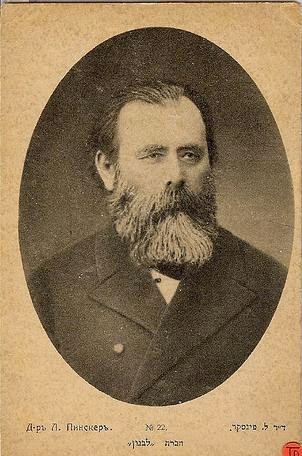I think that there is a basic principle of the Zionist argument that is often misunderstood. Daniel Gordis misrepresented it in his powerful recent column in the New York Daily News. Arguing that the three murdered Israeli teens were killed because they were Jews, Gordis states,
“This would not happen anymore, Jews once told themselves, once we had a state. A century ago, when political Zionism was relatively young, some actually believed that if only the Jews had a country of their own, Jews would be seen as ‘normal,’ and anti-Semitism would end. And even if hatred of the Jew didn’t end, we believed, we would at least be able to protect ourselves. ‘Give us a state,’ Jews said to one another, ‘and we will stop dying just because we are Jews.’ But matters have not worked out that way.”
This may be a misreading of the case for Zionism as a resolution to the Jewish question. If one reads Pinsker and Herzl, one see the case being made for the full normalization of the Jewish people. They saw the weird life of Diaspora Jewry as the cause of anti-semitism. They did not claim that this was fair, but argued that it was normal to fear and dislike a strange wandering people. Pinsker argued that just as a disembodied ghost would frighten and repel a normal person, so are normal nations ultimately appalled by a landless people. In the words of Pinsker:
“Among the living nations of the earth the Jews are as a nation long since dead.
With the loss of their country, the Jewish people lost their independence, and fell into a decay which is not compatible with existence as a whole vital organism.
The state was crushed before the eyes of the nations. But after the Jewish people had ceased to exist as an actual state, as a political entity, they could nevertheless not submit to total annihilation -- they lived on spiritually as a nation. The world saw in this people the uncanny form of one of the dead walking among the living. The Ghostlike apparition of a living corpse, of a people without unity or organization, without land or other bonds of unity, no longer alive, and yet walking among the living -- this spectral form without precedence in history, unlike anything that preceded or followed it, could but strangely affect the imagination of the nations. And if the fear of ghosts is something inborn, and has a certain justification in the psychic life of mankind, why be surprised at the effect produced by this dead but still living nation.
A fear of the Jewish ghost has passed down the generations and the centuries. First a breeder of prejudice, later in conjunction with other forces we are about to discuss, it culminated in Judeophobia.”
 |
| Leon Pinsker |
Essentially, the early Zionists argued that a national return to normal statehood would resolve this problem. Gordis argues that history has proven them wrong. But is that fair? Have we returned to the status of a normal nation? If not, then the Zionist hypothesis has not been tested in a fair experiment.
Assuming that there is any validity at all to Jewish population statistics, I don’t see how the state of Israel represents a normal nation at all. Of approximately fourteen million Jews, around six of those millions live in their homeland. That’s not normal.
Is there another nation on earth that has 57% of it's population living outside of it's homeland? And that diaspora population continues to grow, build institutions, take positions of power and see itself as a permanent part of their host nation’s culture. Even putting aside dual loyalty concerns, this is truly odd. Creating a home that 43% of a people live in, and most of the rest feel connected to is, I would argue, not the Zionist answer to the Jewish Question proposed by the Zionists.
Since the destruction of the First Temple, the Jewish majority has lived outside of it's homeland and saw that as normal. That comes to around 2,600 years since Israel contained most of our people. How did Pinsker describe the problem?
“In the case of a sick man, the absence of desire for food is a very serious symptom. It is not always possible to cure him of this ominous loss of appetite... The Jews are in the unhappy condition of such a patient. We must discuss this most important point with all possible precision. We must prove that the misfortunes of the Jews are due, above all, to their lack of desire for national independence; and that this desire must be awakened and maintained in time if they do not wish to be subjected forever to disgraceful existence -- in a word, we must prove that they must become a nation.”
Again, I would argue that regaining our homeland is a crucial step towards normalization, but not the achievement of the goal itself. Did those early Zionist thinkers promise that this process would go quickly and easily? Quite the contrary. Give them their due. I think that they have been right on target so far.
It took three hundred years, from Joshua to David, to build a stable base for our people in the first commonwealth. After centuries of Judean life in the second temple period, we never managed to achieve all of our goals. Why would we expect a two thousand year exile to lead us to a speedy renormalization from wandering ghost people to healthy stable nationhood?
In short, everybody should read Auto-Emancipation and Der JudenStaat. They are short, brilliant and powerful. (and I skipped all the economics stuff)
 |
| Theodor Herzl |
MNUnterberg